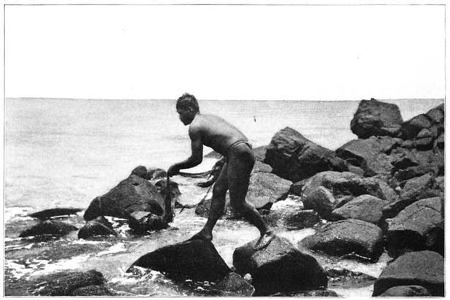|
Resource management, with an emphasis on a Hawaiian sense of place, is a relatively recent movement that has been gaining momentum. There is growing recognition that traditional ecological knowledge has value in maintaining and restoring ecosystem function. When combined with Western science, traditional practices can add substantially to the capacity for sustainable management of Hawaii's natural resources.
|
 Native Hawaiians practiced conservation through a system of kapu, or a taboo prohibition system. Native Hawaiians practiced conservation through a system of kapu, or a taboo prohibition system.
The transfer of traditional values requires cohesion and continuity within a community and is based on the concepts of Na Kupuna, Na Makua and Na Opio (past, present and future). Information in a traditional Hawaiian system is passed on through oral history. The elders (Na Kupuna) held the traditions, conveying the collective knowledge on to the present generation (Na Makua), with the intent that the prosperity of the land would eventually be passed on to future generations, the youth (Na Opio).
PBIN actively supports the acquisition and application of traditional ecological knowledge, as it enhances the existing body of scientific information and emphasizes community involvement in conservation efforts.
Read about Hawaiian community-based management of marine resources at Mo‘omomi, Moloka‘i.
|